Events
The events below are populated from several external sites that publicize grant events relevant to organizations like yours. We also have internal events from Kuja. Use the filters to explore the events that are interesting to you and apply to those that you want to attend!
- Activism
- Adult Welfare
- Animal Rights
- Animal welfare
- Arts & Culture
- Arts & Culture / Galleries
- History
- Humanities
- Museum
- Performing arts
- Public arts
- Visual arts
- Basic Care
- Business growth programs
- Charities
- Children & Youth
- Church
- Church Outreach
- Church-Based
- Civil Society
- Clean energy
- Community Philanthropy
- Conflict Areas
- Development Aid
- Digital Products
- Disadvantaged communities
- Displacement
- Economic Development
- Cash programming
- Economic development
- Entrepreneurship
- Job skills training
- Livelihood development
- Economic and Social Development
- Economic and Social Inequalities
- Education
- Adult education
- Early childhood development
- General education
- Higher education
- Language education
- Primary education
- Secondary education
- Vocational training
- Education in Emergencies
- Education/Young women
- Elderly
- Environment and Agriculture
- Agriculture
- Agroforestry
- Biodiversity
- Climate Change
- Conservation
- Environmental Justice
- Fishing
- Food Security
- Food Sovereignty
- Marine Conservation
- Natural Resource Management
- Organic Farming
- Recycling
- Reforestation
- Renewable Energy
- Urban Sustainability
- Waste Collection
- Environment and Agriculture / Zero emission mobility
- Family Planning
- Fitness & Outdoors
- Gender
- Girl activists
- Giving
- Bilateral Aid
- Individual Donation
- Multilateral Aid
- Philanthropy
- Social Impact Investment
- Volunteering
- Governance
- Activism
- Democracy
- Diplomacy
- Elections
- Foreign Policy
- National Security
- Political Movement
- Public Policy
- Health
- Communicable Diseases
- Environmental Health
- HIV/AIDS
- Hunger Alleviation
- Maternal Health
- Health / Maternal and Child Health
- Health / Maternal and Infant Health
- Mental Health
- Newborn Health
- Noncommunicable Diseases
- Nutrition
- Pandemic
- Primary Health
- Public Health
- Reproductive Health
- Sexual Health
- Substance Abuse
- Traditional Medicine
- Water and Sanitation
- Hospices
- Human rights and Protection / Children's Rights
- Human rights and protection
- Child protection and welfare
- Child soldiers
- Human rights and protection / Disability Rights
- Diversity equity and inclusion
- Feminism
- Gender-based violence
- Human rights
- Indigenous rights
- LGBTQ+ rights
- Racial justice
- Sexual exploitation and abuse
- Social justice
- Human rights and protection / Women's leadership
- Women's rights
- Human rights and protection / Youth empowerment
- Youth rights
- Human rights and protection / end FGM/C
- Humanitarian Aid
- Asylum
- Camp Management
- Humanitarian Aid / Disaster Relief
- Disaster Risk Preparedness and Response
- Emergency Response
- Migration
- Refugee Registration
- Resettlement
- Shelter
- Urban Refugees
- Income generation activities
- Internet Access
- Internet Connectivity
- Job creation
- Locally Led Development
- Microfinance
- Misc.
- Advocacy
- Communications
- Research
- Other (fill in)
- Peacebuilding
- Peacekeeping
- Poverty Alleviation
- Public Safety
- Community Resilience
- Conflict Resolution
- Crime Prevention
- Homelessness
- Housing
- Infrastructure Development
- Legal Services
- Refugee Rights
- Rural Development
- Science
- Biology
- Research
- Earth Sciences
- Engineering
- Health Sciences
- Software and IT
- Telecommunications
- Slavery & forced labor
- Social Action
- Social Care
- Social Entrepreneurship
- Social Impact
- Social and Economic Advancement
- Special needs people
- Sustainability
- Technology
- Torture Survivors
- Tree planting
- Underprivileged
- Value Chains
- Vulnerable people
- Water Access
- Water Resilience
- Website Development
- Welfare
- Wildlife Conservation
- Women & Girls
- Women-Led
- civic engagement
- clean water
- disabled
- drugs dependency
- education women & girls
- exports & imports
- female entrepreneurs
- financial inclusion
- human trafficking
- infectious diseases
- internally displaced persons
- leadership building
- media
- medical research
- sick
- sports & recreation
- sustainable improvements
- trade & development
- women empowerment
- young people
At a time of profound shifts in international funding, this webinar aims to open an urgent conversation about the present and future of philanthropy in Latin America. Local organizations are facing increasing challenges following the closure of the Inter-American Foundation (IAF) and USAID cuts. This situation has revealed the fragility of traditional cooperation models and the need to build new ways to sustain grassroots work.
The event will be structured in three parts: first, a general overview of the current state of philanthropy and international cooperation in Latin America; second, preliminary findings from a regional survey assessing the impact of these funding cuts; and finally, a conversation about collective response strategies, collaborative networks, and the fundamental role of community philanthropy and local funds.

This webinar aims to:
- Provide a general overview of the current context of international cooperation and philanthropy in Latin America.
- Reflect on the structural roots of funding inequalities in the Global South and the political role of philanthropy. Why does the South still lack fair access to resources?
- Share preliminary results of the survey on the impact of the IAF’s closure and USAID cuts on local organizations in the region.
- Show how local networks and funds are organizing: collective responses and alternative models.
- Highlight the role of the Alianza de Fondos del Sur and Rede Comuá as strategic models to mobilize resources from and for Latin America.
- Create a space in Spanish for essential conversations on cooperation, philanthropy, and power.
Date: April 23, 2025
Time:
- San Francisco, USA – 09:00
- Mexico City, Mexico – 10:00
- Caracas, Venezuela – 12:00
- New York, USA - 12:00
- Buenos Aires, Montevideo – 13:00
- London, UK - 16:00
- Cape Town, South Africa - 18:00
- Nairobi, Kenya - 19:00
- Delhi, India - 22:00
Language: Spanish with live interpretation to English
Duration: 1 hour
Speakers
Juan Camilo Mira (Fondo Emerger, Alianza de Fondos del Sur)
Marine biologist with a master's degree in Environmental Management, involved in the analysis and decision-making in the design and implementation of public policies affecting the environmental and rural sectors in Colombia. He has experience in generating sustainable proposals and developing platforms and social processes such as Ecofondo, the Colombian Network of Civil Society Natural Reserves, and the Water Referendum, among others. He is currently the Coordinator of the Fondo Emerger.
Juliana Tinoco (Alianza de Fondos del Sur)
Currently Executive Coordinator of the Socio-Environmental Alliance of Southern Funds, a pioneering initiative of philanthropic funds that support grassroots communities in strategic regions for socio-environmental protection in the Global South.
She has spent nearly two decades strengthening narratives around environmental and climate agendas by connecting them with social issues. Her work focuses on articulation, alliances and institutional relations, knowledge dissemination, communication and participation strategies, multimedia projects, and the promotion of dialogue with diverse audiences.
She is a journalist and audiovisual producer, with a master’s degree in Environment and Development from the London School of Economics (LSE) and a bachelor's degree in Social Communication from the Federal University of Rio de Janeiro (UFRJ).
Jonathas Azevedo (Rede Comuá)
Born in Rio de Janeiro, currently living there, with experience in project management, monitoring and evaluation both in Brazil and Haiti. He has worked in fundraising for Doctors Without Borders, developed trainings, written reports, organized events, and built strategic partnerships.
He is currently Executive Director of Rede Comuá and Programs Advisor at the Brazilian Philanthropy Network for Social Justice. He is also a board member of Doctors Without Borders Brazil, where he serves as Treasurer. His current interests include new grantmaking practices, evaluation, futurism applied to humanitarian aid and development, emerging technologies, and ancestry.
Facundo Ibarlucía (Red Comunidades Rurales / Alianza)
Political scientist specialized in technology service management, design, monitoring and evaluation of socio-environmental projects. Since 2012, he has worked with the Red Comunidades Rurales and the Global Environment Facility (GEF), where he has served as Director of the Rural Community Project Bank and Coordinator of the Research and Knowledge Management Area.
He has led learning communities and developed consulting processes for UNDP's Small Grants Programme (SGP). He has worked on initiatives such as Force for Good (JP Morgan), Resource Mapping (Telecom), and rural development surveys. He holds degrees from Universidad Torcuato Di Tella and Universidad de San Andrés, and is fluent in Spanish, English, and Portuguese.
As traditional aid models are increasingly questioned and ignored, countries in the Global South are forging a new path—one led by the people, for the people. On April 3, 2025, Kuja hosted a powerful and timely conversation titled “Community-Led Development That Works: A Spotlight on Haiti.” It featured two Haitian leaders with decades of experience in grassroots community-led development.
The conversation provided key insights into how local leadership, solidarity, mutual aid, and the circular economy can transform development in Haiti.
Watch the Full Webinar Recording on YouTube
https://www.youtube.com/watch?v=HKycMPeFS9c&ab_channel=KUJA
Key Takeaways
✅ Community-led development is not a buzzword—it is a proven path to resilience and autonomy.
Both speakers stressed that when communities set priorities and lead implementation, results are more sustainable and meaningful.
✅Endogenous development respects local knowledge and focuses on human dignity.
Both Jean-Patrick and L’Hérisson rejected top-down approaches that marginalize local knowledge and advocated for models that see communities as co-creators rather than beneficiaries.
✅ There is an urgent need to channel resources to local actors.
As the development aid sector continues to fragment, support for long-standing, locally rooted organizations is increasingly important. These groups already have the trust, infrastructure, and vision needed for long-term transformation.
✅ Haiti’s development model offers lessons for the entire Global South.
From biogas plants to community foundations, speakers’ work stressed that solutions already exist – what is needed now is global solidarity and investment in these models.
Speakers
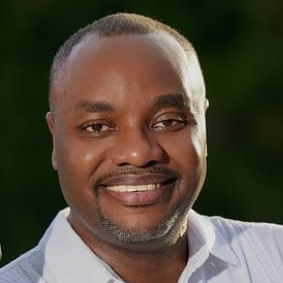
Jean Patrick Lucien
With a background in Computer Engineering from Northeastern University and an MBA, Jean-Patrick has spent over 20 years as an Application Engineer at Siemens Corporation, where he applies his technical skills to solve complex global challenges.
Beyond his corporate career, Jean-Patrick plays a vital role in sustainable development initiatives in Haiti through the EDEM Foundation. His work focuses on education, economic development, and capacity building in Île-à-Vache and southern Haiti, where he owns and operates the Vacation Village Resort and the Village for Innovation, Technology, Education and Sport (VITES), contributing to local tourism and development. One of his key achievements is collaborating with the US Naval Academy to develop biodigesters—innovative systems that convert waste into methane gas for cooking and compost for agricultural use, aligning with Haiti’s sustainability and environmental goals. Currently, Jean-Patrick is leading the Safe Space Project in Haiti, which offers children access to campsites, school gardens, and safe learning environments. This project aims to nurture personal growth, safety, and education, while introducing children to sustainable practices through hands-on agricultural experiences.
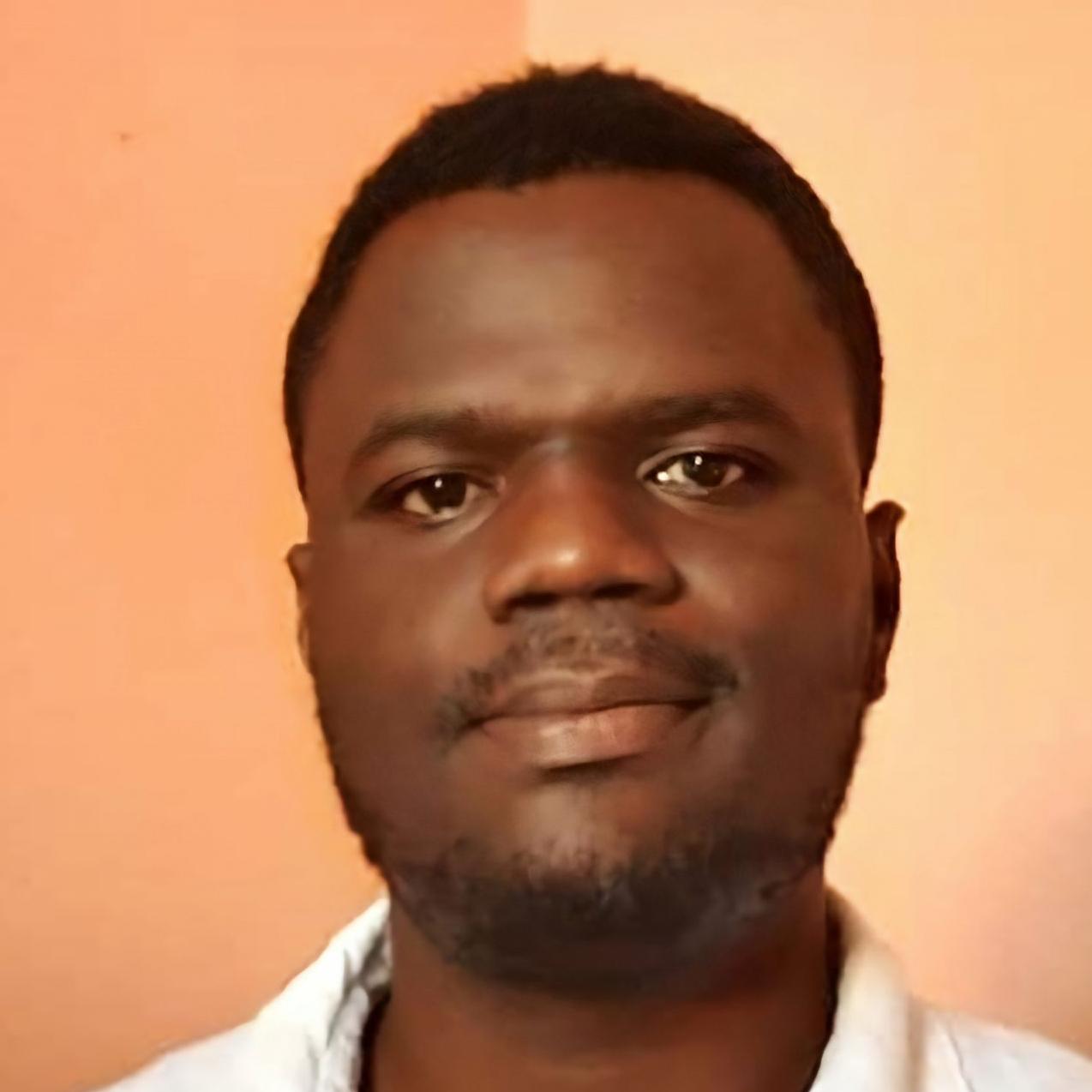
L’Hérisson Hilaire
L’Hérisson Hilaire is a professional agronomist, specialist in plant production, agricultural entrepreneur. L'Hérisson joined the Fondation Communautaire Haïtienne-Espwa/The Haiti Community Foundation (FCH-Espwa) in November 2020 and is its current Executive Director. For more than four years, L’Hérisson has been deeply engaged in community philanthropy and endogenous development with FCH-Espwa in Haiti.
Impact of Funding Cuts in Benin
A conversation with community leaders and local aid professionals on the brutal impact on the sector and the need for structural change.
On March 20, 2025, Kuja hosted its first webinar on our newly launched site! Panelists Bio Yacoubou Bassirou, Moustaphaou Imorou, Djalidou Aboudou Salifou, and Kader Abdel Sabi Pate—local Benin activists and aid professionals—presented the brutal impact of the USAID funding freeze on Benin. Their firsthand insights shed light on how these cuts have affected communities.
When the Kuja team first spoke to the panelists, they were hopeful the funding stop would be temporary. However, by the time of the webinar, they had come to terms with the reality that their projects had been permanently eliminated. Like many local leaders across the Global South, they are now navigating the loss of stability and working to adjust despite the immense challenges.
The Impact on Benin
Francophone Africa is often overlooked in global aid, and Benin was already receiving limited funding—only $77 million from USAID in 2024. Additional support came from the United States African Development Fund (USADF) and the Millennium Challenge Corporation (MCC). The Benin panelists shared how their past projects had directly impacted nearly four million people and indirectly influenced about 65% of the population. With the sudden withdrawal of U.S. aid, the consequences have been devastating across multiple sectors, from health and infrastructure to economic development and national security.
Bio, one of the panelists, described this as a “‘cascade effect,” warning of an impending national famine and extreme poverty. For local aid workers, the crisis is compounded by the lack of a safety net and the responsibility of supporting large families. Despite these setbacks, the panelists shared how they are actively seeking alternative funding sources and exploring in-country and African-based resources to sustain their work.
At the end of the discussion, Kader captured the sentiment of many Global South leaders facing funding uncertainty:
“It is time that each African wakes up and takes care of his own… Our allies from whom we had hoped support, cut their ties with us at a time when we needed them the most… We are planning the future with the resources that we can marshal, and we will do what we need to do little by little. Africans will work together to build Africa’s future.”
Kuja’s webinar underscored the resilience of local organizations and leaders. As aid dynamics continue to shift, these voices must remain at the forefront of conversations about sustainable solutions for the Global South.
Watch the Recording:
https://youtu.be/oSIEUWmD79s?si=4MBc10iTJCq5xyNo
Speakers:
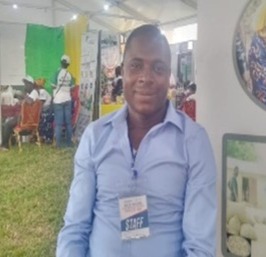
Abdel Kader Sabi Pate:
Capacity Building and Management of Infrastructure and Equipment for SMEs: “with the USADF program” expert.
Agro-economist and project manager specializing in capacity building, innovation, and agricultural project management. Born on December 4, 1990, he has expertise in areas such as agroecology, agricultural advisory services, agricultural cluster value chain management, and environmental protection. He has worked on major projects, including with UNDP, USADF, and CORAF, where he contributed to the resilience of farming communities in the face of climate change and the development of financing strategies for climate-smart agriculture in West Africa.
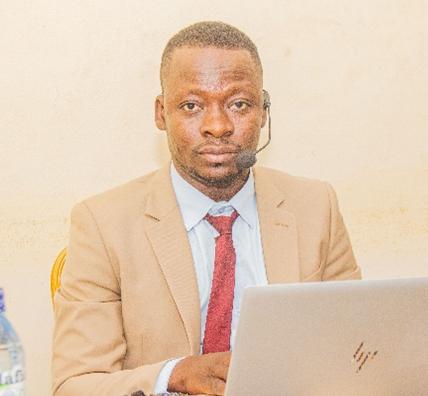
Aboudou Djalidou Salifou:
Countering Violent Extremism & Natural Resources Management Specialist
Expert in project management, peacebuilding, and sustainable development, with over 10 years of experience in the NGO and humanitarian sectors. He holds a PhD in Sustainable Natural Resource Management. Specializing in social cohesion, youth and women's empowerment, and sustainable ecosystem management, he has successfully led strategic initiatives to promote the resilience of vulnerable communities. His commitment has led him to design, implement, and evaluate large-scale projects funded by renowned donors such as USAID, UNDP, and the World Bank.
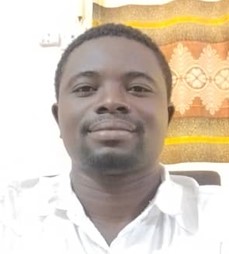
Imorou Moustaphaou:
Specialist in Agroecology and Biodiversity Conservation
After his basic training in Agronomy (specialty: Management of forests and protected areas), Moustaphaou benefits from more than 10 years of practical experience in forest ecology, biodiversity preservation and resilient agriculture with a focus on social standards, having held several positions, the most recent of which is that of Expert in Ecology and Biodiversity with the company GINGER SOFRECO within the framework of “Consultant Services in Program Management and Social Environmental Management” under MCC funding.
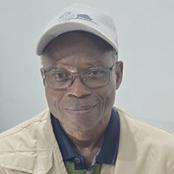
M. Bio Yacoubou Bassirou:
Founder of Maison des Tortues, a Civil Society Network for Civil Society Organizations for the protection of the environment
A leading African activist, advisor and expert in conservation, community mobilization as well as in resource and organizational development, M. Bassirou is a Founding Member of Maison des Tortues, a network of civil society organizations focused on conservation and environmental protection
